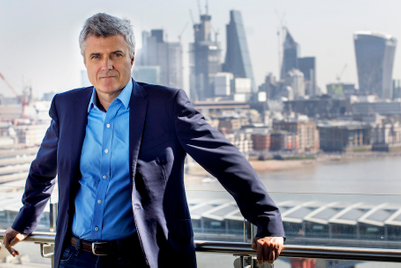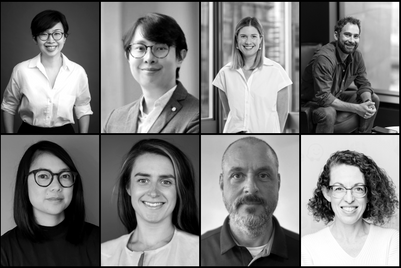
WPP’s chief executive Mark Read has claimed “people are happier when they’re in the office”, when he was asked about his “strict” office policy onstage at SXSW London.
The chief executive was in conversation with Katie Prescott, tech business editor at The Times.
It follows WPP mandating that staff must be in the office four days a week, including two Fridays a month, from April 2024.
A protest followed the announcement, with employees calling for a rethink of the “rigid policy”. To date, the petition has more than 20,000 signatures.
“I’d say human productivity and human collaboration make certainly all creative companies, including WPP, special.”
AI and the workforce
The discussion focused heavily on AI, with WPP’s media arm recently rebranding to an “AI-driven media company”.
Still, Read didn't think “machines will ever be creative in the same way” that humans can.
They can “imitate and they can create within a boundary”, but they are not going to take a “mental leap” in the same way humans do.
“Ultimately, progress and innovation come from mental leaps,” he said.
But he did discuss the future of the workforce with AI. Currently, WPP Media is undergoing redundancies, with several figures departing in the previous week.
After showing a video demonstrating how WPP Open, the network’s AI tool, works, Read said: “There’s no doubt that the work we do today, there will be fewer people involved.”
He added: “I think there’s lots of quite complex tasks it will replace so it will be a massive productivity boost. I think it will be very disruptive and it’s going to disrupt things, in some respects faster than it’s going to create things.”
Will customers return to X?
Prescott also asked Read about advertisers returning to X.
Campaign has previously reported on the subject, with agency leaders saying they “can’t see brands ever returning”.
Read said however, that “some clients have gone back, some clients have remained on the platform”.
“Clients make the decision ultimately and one of our jobs is to help our client decide.”
He added that there was a push to take politics out of the conversation.
“There is a push to try and go where audiences are and be less judgemental. But I think clients are still concerned about their reputation, particularly what they’re adjacent to.”
Copyright debate
Before the talk ended, Prescott asked Read about his stance on the current copyright debate.
In February this year, the government published a consultation on AI proposing a change to current copyright legislation, which would allow tech companies to use creative works including film, TV and original journalism to train AI models without the permission of the creators, unless they have opted out.
Both The Times and Campaign supported a “Make it fair” campaign, which claimed that the lack of transparency and compensation would devalue content.
Read said: “I think we have to find a solution to the problem that enables creators to get paid for the creative. I think anyone that runs a creative organisation or is a creator wants that because otherwise there's no incentive or reward.”
He used the example that YouTube didn’t previously know how to compensate the music companies for music videos shared on their site, but they “found a way to do it in the end”.
“I think in the end there will be a way for the models to compensate creators for the content that they're using. That's what we should push towards. We can't just ignore it because it's too difficult.”




.jpg&h=334&w=500&q=100&v=20250320&c=1)

.jpg&h=334&w=500&q=100&v=20250320&c=1)


.jpg&h=334&w=500&q=100&v=20250320&c=1)

.png&h=334&w=500&q=100&v=20250320&c=1)







